Audi Q5 VS BMW X3
The Audi Q5 and BMW X3 are two of the most popular compact luxury SUVs, each offering a unique blend of performance and practicality. The Q5 impresses with its refined interior and advanced technology, while the X3 stands out for its dynamic handling and sporty driving experience. Ultimately, choosing between these two models boils down to personal preference, with both delivering exceptional quality and comfort.
Audi Q5
The Audi Q5 exudes a perfect blend of luxury and performance, making it a standout in the competitive SUV market. Its elegant design is complemented by a spacious and meticulously crafted interior, providing both comfort and functionality for drivers and passengers alike. With advanced technology and a range of powerful engines, the Q5 effortlessly combines driving pleasure with practicality for everyday use.
detailsBMW X3
The BMW X3 stands out in the competitive SUV market with its refined blend of performance and luxury. Its interior boasts high-quality materials and a design focused on driver comfort and convenience. With a robust engine lineup, the vehicle offers a balanced driving experience that caters to both urban settings and off-road adventures.
detailsAudi Q5 vs. BMW X3: The Ultimate SUV Showdown
In the competitive world of luxury SUVs, two names stand out: the Audi Q5 and the BMW X3. Both vehicles embody a perfect blend of performance, comfort, and cutting-edge technology. However, which one reigns supreme? This comparison delves into their technical specifications, innovations, and overall appeal to help you make an informed decision.
Performance and Engine Options
The Audi Q5 offers a range of engine types including Diesel MHEV, Petrol MHEV, and Plugin Hybrids, providing power outputs ranging from 163 HP to a potent 367 HP. Its powertrain technologies include advanced automatic transmissions, ensuring a smooth and responsive driving experience. The acceleration of the Q5 is impressive, with a sprint from 0-100 km/h achievable in as little as 4.5 seconds.
On the other hand, the BMW X3 also showcases a robust lineup of engine options, from Diesel MHEV to standalone petrol engines, with outputs starting at 184 HP and peaking at a remarkable 398 HP. The X3's acceleration is equally commendable, with the fastest model reaching 0-100 km/h in just 3.8 seconds, leaving the Q5 in its wake.
Fuel Efficiency and Emissions
Fuel efficiency is a key consideration for many SUV buyers, and both the Q5 and X3 present competitive figures. The Q5 boasts a consumption of as low as 5.6 L/100 km for selected models, while certain versions can achieve electric ranges of up to 62 km, making it a suitable choice for eco-conscious drivers.
The X3 holds its ground with a minimum fuel consumption of 5.8 L/100 km and impressive electric ranges, particularly with its Plugin Hybrid versions, which can offer up to 90 km on electric power alone. This efficiency places it in the mix for those looking to minimize their carbon footprint.
Interior and Comfort
Stepping inside the Q5 reveals a meticulously crafted cabin, featuring high-quality materials and state-of-the-art technology. Audi’s Virtual Cockpit offers a digital display that enhances the driving experience, while spacious seating for five provides comfort on long journeys. The trunk capacity measures a generous 520 liters, allowing ample room for luggage and other cargo.
Conversely, the X3’s interior is designed with a focus on sportiness and user-friendliness. The layout is intuitive, with premium materials that radiate sophistication. With trunk space ranging up to 570 liters, the X3 ensures that cargo space is not compromised for luxury.
Safety and Innovative Features
When it comes to safety, both Audi and BMW have integrated advanced systems in their vehicles. The Q5 is equipped with Audi’s suite of driver assistance features, including Adaptive Cruise Control, Lane Departure Warning, and Collision Avoidance systems that enhance peace of mind on the road.
The BMW X3 also offers an impressive array of safety technologies, such as Active Driving Assistant, which includes similar features to Audi's offerings. Both vehicles have received high safety ratings in crash tests, promising a secure environment for occupants.
Final Verdict: Which SUV is for You?
In conclusion, the Audi Q5 and BMW X3 are formidable contenders in the luxury SUV market. The Q5 excels in interior comfort and a range of engine options, while the X3 shines with its sporty performance and superior acceleration. Your choice ultimately hinges on personal preference—whether you prioritize cutting-edge technology and comfort in the Q5 or sportiness and performance in the X3.
Regardless of your decision, both vehicles promise an exhilarating driving experience, making them worthy of consideration in your quest for the perfect SUV.
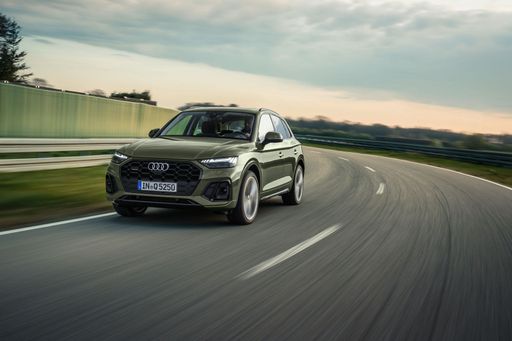 @ audi-mediacenter.com
@ audi-mediacenter.com
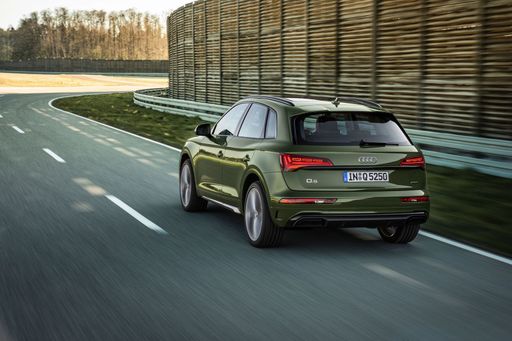 @ audi-mediacenter.com
@ audi-mediacenter.com
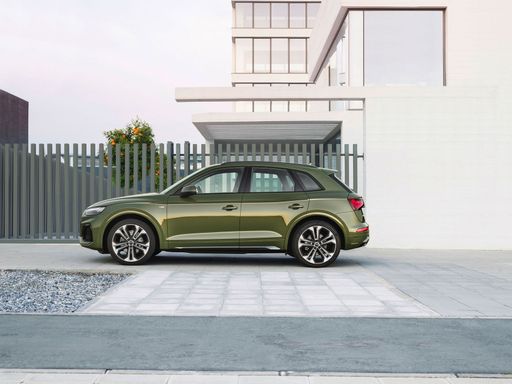 @ audi-mediacenter.com
@ audi-mediacenter.com
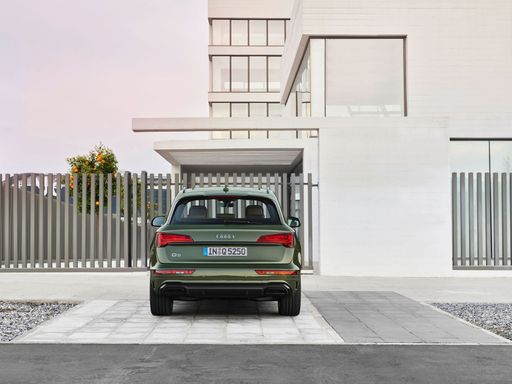 @ audi-mediacenter.com
@ audi-mediacenter.com
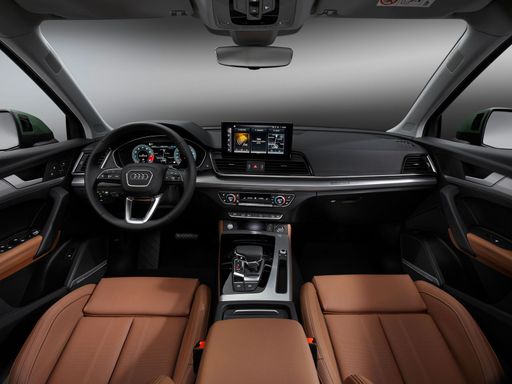 @ audi-mediacenter.com
@ audi-mediacenter.com
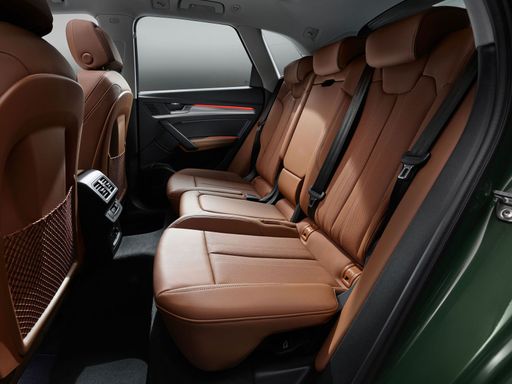 @ audi-mediacenter.com
@ audi-mediacenter.com
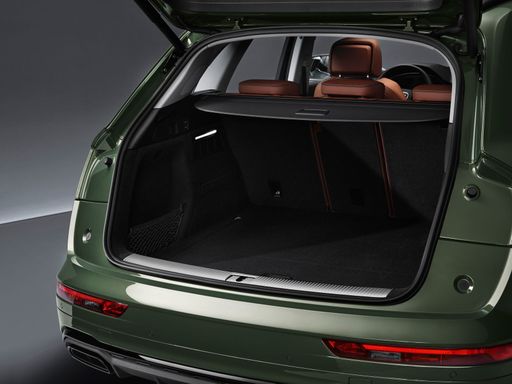 @ audi-mediacenter.com
@ audi-mediacenter.com
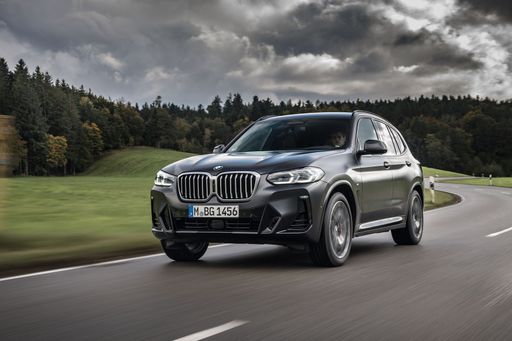 @ press.bmwgroup.com
@ press.bmwgroup.com
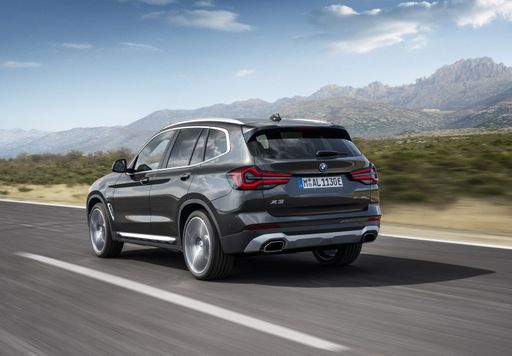 @ press.bmwgroup.com
@ press.bmwgroup.com
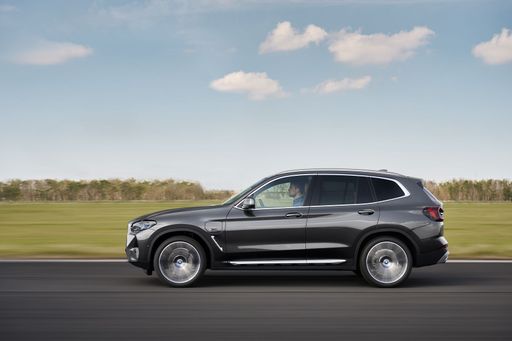 @ press.bmwgroup.com
@ press.bmwgroup.com
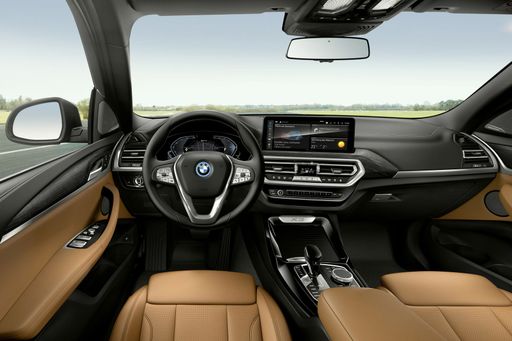 @ press.bmwgroup.com
@ press.bmwgroup.com
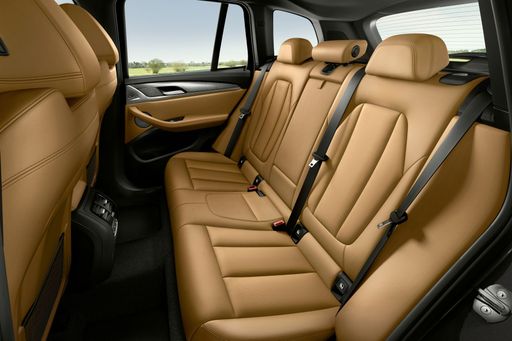 @ press.bmwgroup.com
@ press.bmwgroup.com

|

|
|
|
|
Costs and Consumption |
|
|---|---|
|
Price
about 42800 - 78900
£
|
Price
about 47900 - 90300
£
|
|
Consumption L/100km
1.5 - 8.4
L
|
Consumption L/100km
0.9 - 10.8
L
|
|
Consumption kWh/100km
-
|
Consumption kWh/100km
-
|
|
Electric Range
61 - 62
km
|
Electric Range
44 - 90
km
|
|
Battery Capacity
14.4
kWh
|
Battery Capacity
11.2 - 19.7
kWh
|
|
co2
35 - 213
g/km
|
co2
21 - 246
g/km
|
|
Fuel tank capacity
54 - 70
L
|
Fuel tank capacity
50 - 68
L
|
Dimensions and Body |
|
|
Body Type
SUV
|
Body Type
SUV
|
|
Seats
5
|
Seats
5
|
|
Doors
5
|
Doors
5
|
|
Curb weight
1810 - 2150
kg
|
Curb weight
1875 - 2140
kg
|
|
Trunk capacity
455 - 520
L
|
Trunk capacity
450 - 570
L
|
|
Length
4682 - 4717
mm
|
Length
4708 - 4755
mm
|
|
Width
1893 - 1900
mm
|
Width
1891 - 1920
mm
|
|
Height
1633 - 1662
mm
|
Height
1660 - 1676
mm
|
|
Payload
495 - 630
kg
|
Payload
415 - 585
kg
|
Engine and Performance |
|
|
Engine Type
Diesel MHEV, Petrol MHEV, Plugin Hybrid
|
Engine Type
Diesel MHEV, Petrol MHEV, Plugin Hybrid, Petrol
|
|
Transmission
Automatic
|
Transmission
Automatic
|
|
Transmission Detail
Automat. Schaltgetriebe (Doppelkupplung), Automatic Gearbox
|
Transmission Detail
Automatic Gearbox
|
|
Drive Type
All-Wheel Drive, Front-Wheel Drive
|
Drive Type
All-Wheel Drive
|
|
Power HP
163 - 367
HP
|
Power HP
184 - 510
HP
|
|
Acceleration 0-100km/h
4.5 - 9
s
|
Acceleration 0-100km/h
3.8 - 8.4
s
|
|
Max Speed
213 - 250
km/h
|
Max Speed
210 - 250
km/h
|
|
Torque
320 - 700
Nm
|
Torque
300 - 700
Nm
|
|
Number of Cylinders
4 - 6
|
Number of Cylinders
4 - 6
|
|
Power kW
120 - 270
kW
|
Power kW
135 - 375
kW
|
|
Engine capacity
1968 - 2995
cm3
|
Engine capacity
1995 - 2998
cm3
|
|
Top speed
213 - 250
km/h
|
Top speed
210 - 250
km/h
|
General |
|
|
Model Year
2023 - 2025
|
Model Year
2023 - 2024
|
|
CO2 Efficiency Class
E, F, G, B
|
CO2 Efficiency Class
F, B, G, E
|
|
Brand
Audi
|
Brand
BMW
|
Audi Q5
The Audi Q5 stands as a prominent figure in the luxury SUV segment, combining elegant design with cutting-edge technology and efficient performance. As of its latest models, the Q5 continues to impress with a multitude of engine options, including mild-hybrid and plug-in hybrid variants, catering to a range of driving preferences and environmental considerations.
Dynamic Performance and Engine Innovation
At the heart of the Q5’s appeal lies its impressive powertrain offerings. The range includes both diesel and petrol engines, featuring advanced mild-hybrid technology, which enhances efficiency and performance. The integration of the mild-hybrid system allows for reduced fuel consumption and lower CO2 emissions without compromising on power. With outputs ranging from 163 to 367 PS, the Q5 offers an exhilarating driving experience, whether purists opt for the robust diesel engines or the spirited petrol variants.
Impressive Fuel Economy
One of the standout features of the Audi Q5 is its remarkable fuel efficiency. With fuel consumption figures as low as 1.5 L/100km for the plug-in hybrid models, the Q5 sets a benchmark in its class. Coupled with a spacious fuel tank that can hold between 54 and 70 litres, drivers can enjoy extended journeys without frequent refueling stops. Even the conventional engines maintain competitive efficiency, making the Q5 an excellent option for eco-conscious consumers.
Advanced Safety and Driver Assistance Technologies
The Q5 is equipped with an array of advanced safety features and driver assistance systems that enhance the driving experience. Technologies such as adaptive cruise control, lane departure warning, and collision avoidance systems provide an additional layer of security for both driver and passengers. Furthermore, the Q5's infotainment system is intuitive and user-friendly, featuring connectivity options that keep you seamlessly connected on the road.
Luxurious Interior and Comfort Features
Step inside the Audi Q5, and you will immediately be captivated by its sophisticated cabin that boasts high-quality materials and attention to detail. The spacious interior comfortably seats five passengers, providing ample head and legroom. The rear seats can be adjusted to enhance cargo space, with boot capacity ranging from 455 to 520 litres, perfect for family outings or road trips. High-end audiovisual systems and customizable ambient lighting contribute to an atmosphere of luxury that Audi is renowned for.
All-Wheel Drive Versatility
Equipped with Audi's legendary quattro all-wheel drive system, the Q5 delivers exceptional grip and handling across various terrains and weather conditions. This capability ensures that drivers can have confidence whether navigating urban environments or venturing off the beaten path. The front-wheel drive variants also offer a commendable driving performance while maintaining efficiency.
Conclusion: The Ultimate Luxury SUV
The Audi Q5 is a masterful combination of luxury, performance, and practicality. With its range of powerful and efficient engines, advanced technology, and a focus on driver and passenger comfort, the Q5 sets itself apart in the crowded SUV market. Whether for commuting, family trips, or weekend getaways, the Q5 is designed to meet diverse needs and preferences with style and sophistication.
BMW X3
Introducing the BMW X3: A Blend of Power and Innovation
The BMW X3 is a testament to the brand’s commitment to merging luxury with cutting-edge technology. This SUV not only offers impressive on-road performance but also showcases innovative features that cater to both petrolheads and eco-conscious drivers.
Powerful Performance Across the Range
The BMW X3 comes with various powertrain options to suit diverse driving preferences, ranging from efficient plug-in hybrids to powerful petrol and diesel mild-hybrids. With performance outputs ranging from 184 PS to an impressive 510 PS, the X3 proves its versatility on the road. Paired with BMW's renowned automatic transmission, each model offers a smooth and responsive driving experience complemented by the brand's xDrive all-wheel-drive system.
Leading-Edge Hybrid Technology
Among the X3's portfolio, the plug-in hybrid variants stand out with their optimal balance between efficiency and performance. These models boast electric-only ranges up to 90 km, ideal for urban driving with minimal emissions. Meanwhile, the mild-hybrid systems enhance efficiency by recuperating energy during deceleration and supporting the combustion engine, optimizing fuel consumption ranging from 0.9 L/100km to 10.8 L/100km depending on the model.
Contemporary Design with Practical Features
From a design perspective, the BMW X3 maintains its iconic SUV silhouette, characterized by robust proportions and sleek, aerodynamic lines. With dimensions of up to 4755 mm in length and a luggage capacity of up to 570 litres, it caters to both style enthusiasts and practical users. Additionally, the interior showcases BMW’s commitment to sophistication, featuring high-quality materials, state-of-the-art infotainment systems, and comprehensive driver-assistance technologies.
Efficiency Meets Performance
The X3's impressive performance figures are complemented by its responsible approach to CO2 emissions, aligning with EU efficiency standards. Enhanced by its comprehensive suite of driver aids and intelligent safety features, the X3 ensures both the thrill of driving and peace of mind.
Conclusion: The Ultimate Driving Companion
In essence, the BMW X3 represents the perfect intersection of dynamic performance, fuel efficiency, and modern-day technology. With options catering to diverse needs and preferences, it remains a leading choice for drivers seeking versatility, innovation, and luxury.
